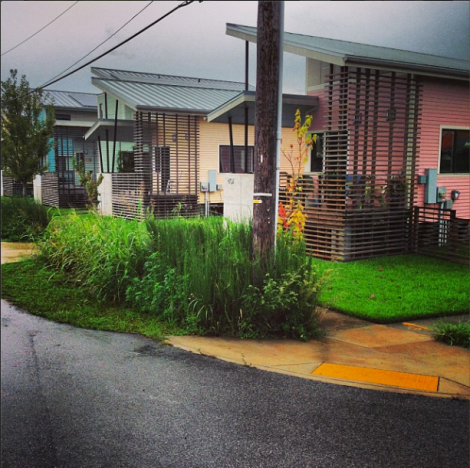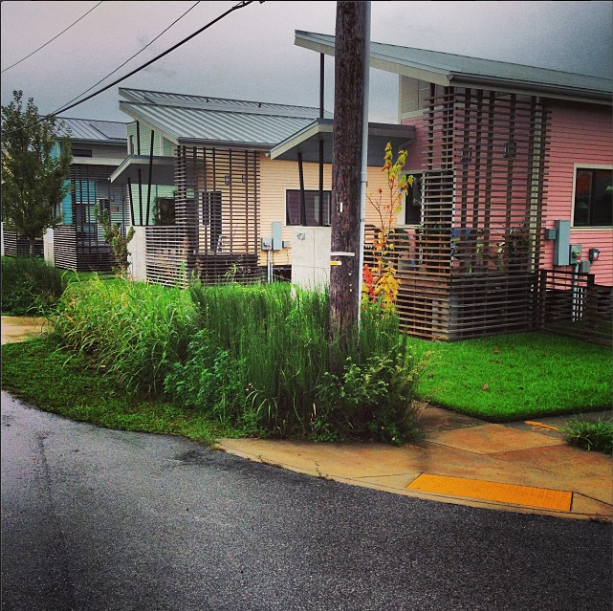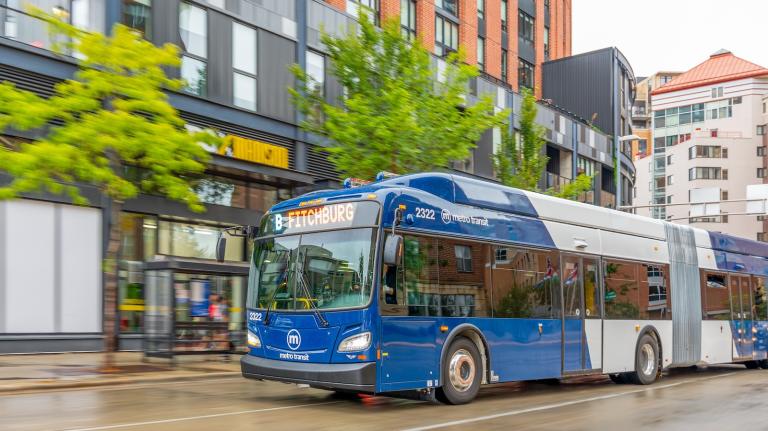
Chip GillerRainwater garden, Lower Ninth Ward, New Orleans.
Dear friends,
Fall is here — have you noticed the unmistakable whiff of End Times in the air? The latest climate report says we’re all doomed, the government has shut down, Breaking Bad is over … how much more can we take?
OK, I’ve never actually watched Breaking Bad. But I did find the timing of the other two events amazing: Just days after the influential IPCC report said we must take action to avoid irreversible planetary harm, the U.S. government proved that it was incapable of performing basic functions, never mind taking proactive steps on climate and energy.
That is, in a word, bad.
I’ve been thinking about this perfect storm of urgency and inaction a lot this week, because I’m making my first-ever visit to New Orleans. I’ll never forget being in the Grist newsroom when Hurricane Katrina struck. Along with the rest of the country, we watched with increasing horror as the storm devastated homes and lives across the city. But unlike the rest of the country, we also found ourselves wondering: Did climate change make Katrina worse?
It was an odd question to ask back then. Climate change had not yet found its way into the mainstream. Things were different when Hurricane Sandy hit: In the blink of an eye, the press was all over “the climate question.” Grist had played an important role in elevating the issue during the ensuing years, and we’re glad more of our media peers are asking questions about what climate change really looks like — and how we’re going to deal with it.
On this trip, I’ve been lucky enough to get a firsthand look at some real-world solutions being put into action, from rainwater gardens, permeable pavement, and LEED-platinum homes in the Lower Ninth Ward, to a thriving urban farm on New Orleans’ north side. If anything, they seem to be proof that progress is possible, even in the unlikeliest of places.
At Grist, we’ve been working hard to spotlight projects like this around the country for a while now. That’s because they make us feel hopeful in a time of planetary — and governmental — gloom, and because we think they can provide replicable models for other communities. Next year, we hope to spur even more action by convening changemakers and influencers at a groundbreaking event. (If you’re interested in finding out more about that, please be in touch.)
From where I sit, one thing is clear: Climate change is real, it’s affecting all of us, and we have got to do something about it.
Conclusively,
Chip



